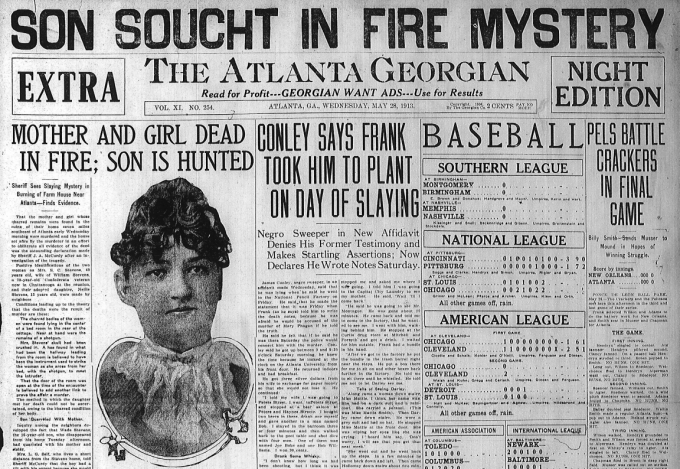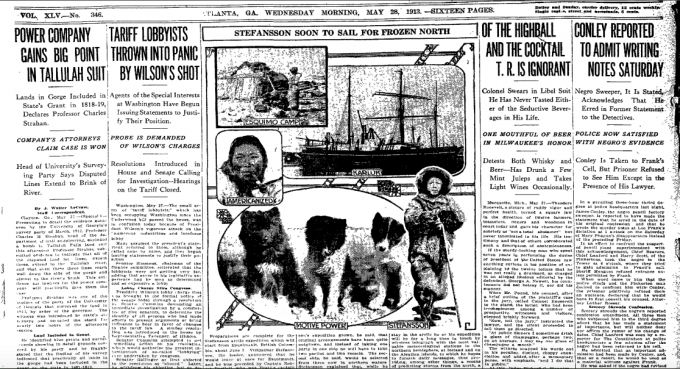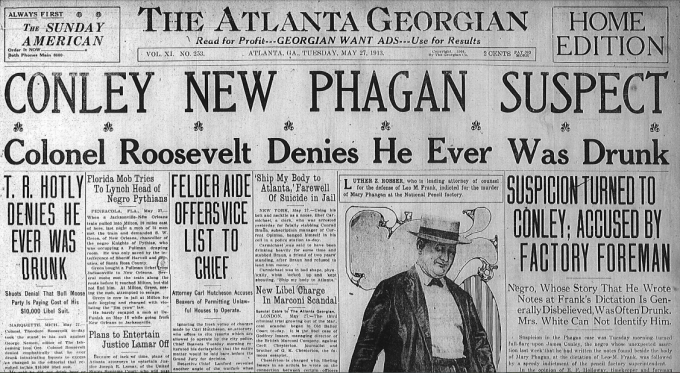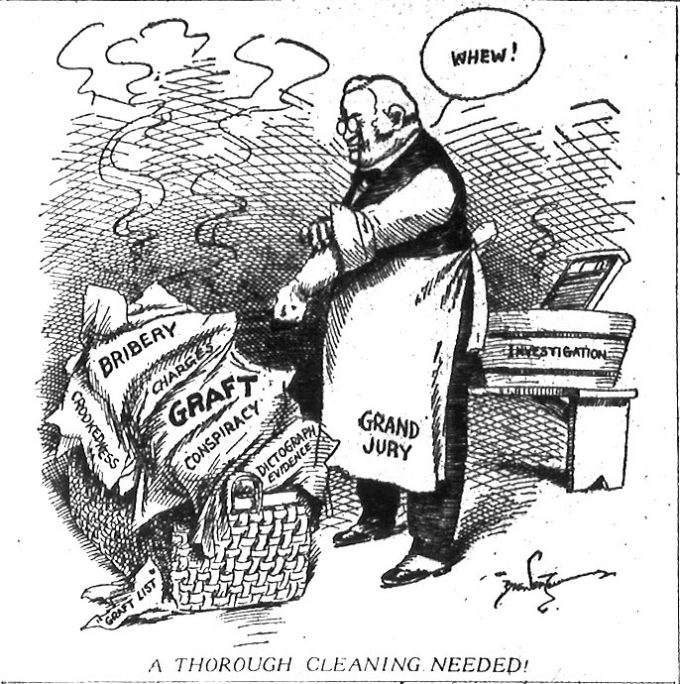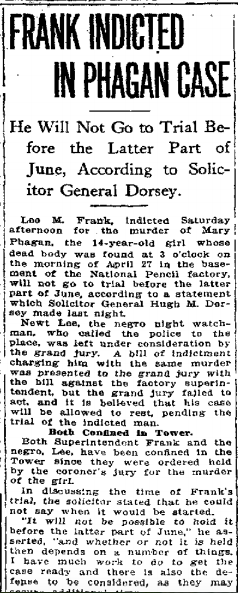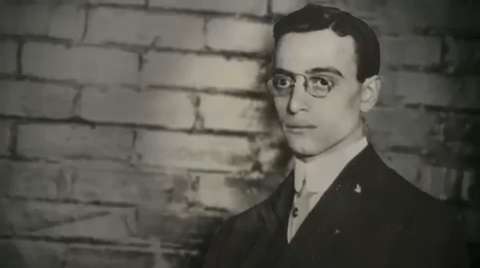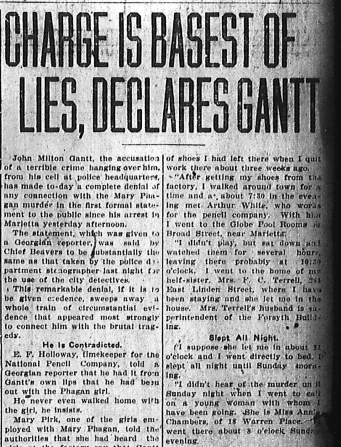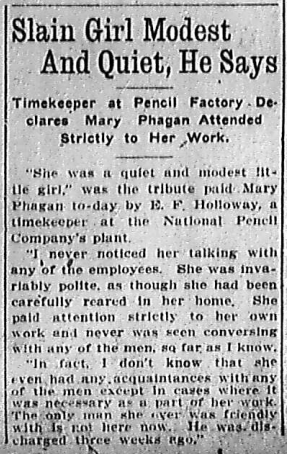Another in our series of new transcriptions of contemporary articles on the Leo Frank case.
Atlanta Georgian
Wednesday, May 28th, 1913
Negro Sweeper in New Affidavit Denies His Former Testimony and Makes Startling Assertions; Now Declares He Wrote Notes Saturday.
James Conley, negro sweeper, in an affidavit made Wednesday, said that he was lying when he said he went to the National Pencil Factory on Friday. He said that he made the statement that it was Friday when Frank (as he says) told him to write the death notes, because he was afraid he would be accused of the murder of Mary Phagan if he told the truth.
He said he felt that if he said he was there Saturday the police would connect him with the murder. Conley said he got up between 9 and 9:30 o’clock Saturday morning, he knew the time because he looked at the clock on the Atlanta University from his front door. He returned indoors and had breakfast.
He got three silver dollars from his wife to exchange for paper money so that she would not lose it. He continued: Continue Reading →

